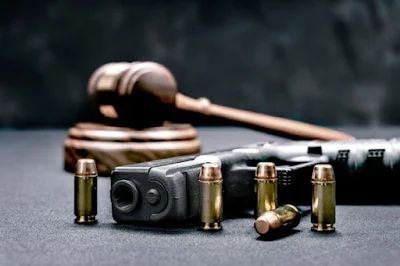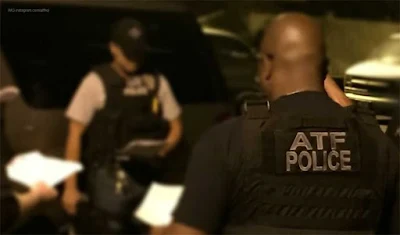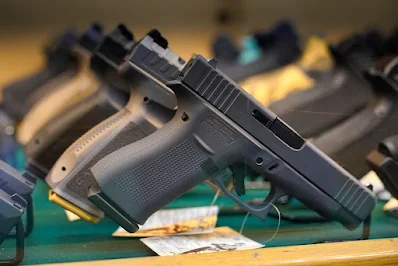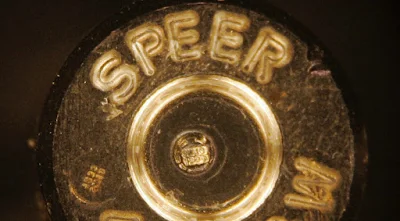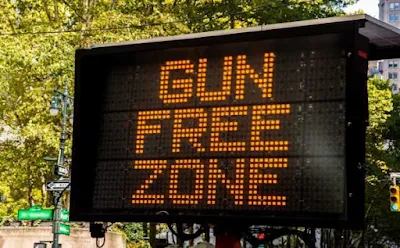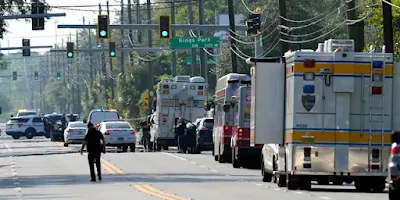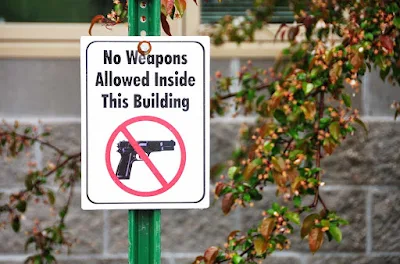Thursday, August 31, 2023
Biden Administration Submits Legal Brief in Rahimi Case, Discussing Civil Restraining Orders and Due Process
On August 14, 2023, the Biden administration provided its legal brief to the Supreme Court concerning the USA v. Rahimi case. The crux of the brief posits that the U.S. government has the authority to suspend fundamental constitutional rights, including the right to bear arms, through civil restraining orders. The argument hinges on the notion that the Second Amendment is applicable only to "law-abiding, responsible citizens."
From the administration's brief:
"Congress may disarm individuals who are not 'law-abiding, responsible citizens,' according to past Court decisions."
The administration further states that many elements of the Second Amendment are based on the assumption that it only protects this particular group of citizens. However, this assertion isn't universally accepted as legal precedent.
In a separate opinion related to the case when it was appealed at the Fifth Circuit, Judge Ho argued that individuals can lose their rights only upon arrest and imprisonment for criminal activities. He asserted that civil law, in contrast to criminal law, lacks historical precedent to disarm people based on restraining orders.
Judge Ho pointed out:
"18 U.S.C. § 922(g)(8) disarms people based on civil orders rather than criminal proceedings. There's a lack of historical precedent to support this under Bruen."
Judge Ho also raised concerns about the misuse of civil restraining orders, especially in divorce cases, and questioned the rationale behind using them to disarm individuals.
To bolster its argument, the Biden administration cited various historical examples of people being denied rights for not being "peaceable," equating this term with "law-abiding, responsible citizens." However, it raises the question of whether a judge has the authority to label someone as "non-peaceable" without criminal conviction, especially in non-adversarial proceedings.
Starting from page 37, the brief also mentions recent cases that question the constitutionality of broad firearm restrictions under the Gun Control Act of 1968. It lists a variety of laws passed after 1900 aimed at disarming various groups, such as violent criminals and non-citizens. However, these additions occurred much later in history and do not necessarily capture the original intent of the Second Amendment.
The Rahimi case becomes complicated due to the defendant's lack of public sympathy, which sometimes influences judicial decisions. The administration is keen on framing the argument as a domestic violence issue rather than a constitutional rights issue, using emotional reasoning as a tactic.
The Biden administration's brief doesn't address historically discriminatory laws that disarmed specific groups like slaves or Native Americans. It also cites research papers that suggest more firearms exacerbate domestic violence situations. Those in favor of robust Second Amendment rights should counter these claims with data showing, for example, that intimate partner homicides have remained stagnant even after the implementation of the Lautenberg amendment in 1997.
The Biden administration aims to present the case as a matter of public safety rather than an erosion of constitutional rights without due process. It leans heavily on emotional appeals and selective historical examples to make its case.
Federal Court Temporarily Halts ATF's Labeling of Forced Reset Triggers as Machine Guns
The Northern District of Texas Federal Court has issued a temporary restraining order in favor of the National Association for Gun Rights in their legal battle against the ATF. This order will maintain the current situation in the case until either September 27, 2023, or until a decision is made on the plaintiffs' request for a preliminary injunction.
The Association cited a precedent set by the 5th Circuit Court in the Cargill case, arguing that bump stocks should not be considered machine guns. Judge O'Connor concurred, suggesting that the Association has a strong likelihood of winning the case based on existing laws.
In a 2022 communication to federal firearms dealers, the ATF had classified 'forced reset triggers' (FRTs) as 'firearms' and 'machine guns' according to the National Firearms Act and the Gun Control Act.
Rare Breed Triggers initiated the sale of their Forced Reset Trigger in December 2020 after extensive legal review. However, by January 2021, the ATF had started campaigns to ban these triggers. Despite the ATF's claim that public concerns initiated this action, Freedom of Information Act requests revealed no such concerns from the public had been recorded.
Dudley Brown, the President of the National Association for Gun Rights, commented that the restraining order represents progress in refuting the ATF's questionable redefinition of 'machine gun' and aims to cease the agency's overreach towards Rare Breed Triggers.
The lawsuit's objective is to revoke the ATF's prohibition on FRT triggers and safeguard the owners of these triggers from undue ATF intervention.
According to existing federal legislation, a 'machine gun' is a weapon capable of firing multiple rounds with a single trigger action. This longstanding definition, which the ATF is purportedly disregarding, makes it clear that Rare Breed Triggers' FRT only enables the firing of one round per trigger action.
Hannah Hill, the Executive Director of the National Foundation for Gun Rights— the National Association for Gun Rights' legal division—expressed optimism that the temporary restraining order is a positive indicator for a future preliminary injunction that would protect all their members.
Wednesday, August 30, 2023
U.S. District Judge Criticizes ATF's 'Excessive Use of License Revocations'
Reggie Wilson, who operates Wilson Gun Works & Design in Sapphire, North Carolina, specializes in crafting high-quality hunting and competition rifles. While gunsmithing is Wilson's side gig, his primary occupation is as a machinist in the nearby town of Fletcher. Wilson's custom-built rifles have garnered numerous awards and praise from his clientele over the years.
Legal trouble began for Wilson during a March 2022 audit by ATF Inspector Shawn Cook, who accused Wilson Gun Works of several infringements of the Gun Control Act (GCA). According to allegations, Wilson had given two handguns to his stepdaughter, a Florida resident, without conducting the required background check. Additionally, Wilson was accused of not reporting the sale of multiple handguns to an unlicensed individual.
Following these allegations, the ATF initiated proceedings to revoke Wilson's Federal Firearm License on March 17, 2022. After a hearing held in July 2022, it was disclosed that Wilson had indeed transported firearms to his stepdaughter in Florida and had filled out the requisite ATF Form 4473 there. Because this action did not take place at his licensed North Carolina premises, Wilson was also in violation of specific federal laws and regulations.
In September 2022, the ATF finalized the revocation of Wilson's Federal Firearm License, declaring he had intentionally breached the GCA. Wilson appealed this decision in a federal court on November 16, 2022. U.S. District Judge Max O. Cogburn, Jr., despite siding with the ATF, raised concerns over the agency's approach.
Although he found no other option but to support the ATF's decision legally, Judge Cogburn commented on the severity of the agency's actions, suggesting they seemed excessive given the context. He noted that Wilson's one-time sale to his stepdaughter did not appear to endanger public safety or obstruct the ATF's mission to reduce violent crime.
“Finally, the Court notes that Mr. Wilson, who sold firearms as a side business, sold the guns to his own stepdaughter. Nothing in the record indicates that Mr. Wilson’s conduct of selling two guns on one occasion to his own stepdaughter affected public safety or hampered the ATF’s ability to reduce violent crime, which is of course one of the purposes of the GCA. Of course, the ATF has been delegated the authority to revoke the license of a licensee who has willfully violated any provision of the GCA, even if the revocation seems a heavy-handed punishment in response to the violation at issue. Still, this sort of heavy-handed exercise of revocations, as opposed to warnings or suspensions, foments antipathy for government agencies,” Judge Cogburn wrote.
Wilson was not aware of the appeal's outcome or the judge's remarks when contacted. His license revocation stands as yet another instance in a growing trend of gun dealers facing crackdowns under the Biden administration's policies.
To assist with his legal costs, a crowdfunding account has been set up on GiveSendGo for Wilson.
Tuesday, August 29, 2023
ATF Inspector Takes Firearm Shop Documents Unlawfully, Bypassing Warrant Requirements
An Industry Operations Inspector (IOI) from Florida, working for the Bureau of Alcohol, Tobacco, Firearms and Explosives (ATF), recently took records and documents from Kiloton Tactical, a federal firearms licensee (FFL), without following federal protocols. The IOI took these documents off-site for copying, directly contravening federal law, and planned to return them a week later.
Kiloton Tactical is part of a group of FFLs spearheaded by Eric Blandford, who runs the Iraqveteran8888 YouTube channel, that have filed a lawsuit against the ATF. The focus of the suit revolves around actions like those of the IOI, which are deemed illegal.
According to federal regulations, specifically 18 U.S.C. 923(g)(1)(A) and 27 CFR § 478.23(cd), IOIs are allowed to inspect records during on-site visits but are not authorized to remove them from the premises. The law specifically restricts such actions.
The IOI's actions not only flout federal law but also defy the guidelines set forth in the ATF's own IOI handbook, which explicitly forbids removing records for off-site inspection. Despite its significance, the ATF has been reluctant to make this handbook publicly available.
This occurrence reflects broader issues within the ATF, leading many to question the agency's training and even its adherence to its own rules. This instance is part of a larger pattern of what some describe as government overreach, especially following the Biden Administration’s zero-tolerance policy toward FFLs, which has led to increased scrutiny and FFL revocations.
This new stance from the administration doesn't just target what it calls "rogue dealers" but is also affecting smaller gun stores, resulting in a dramatic increase in FFL revocations. The Gun Owners of America (GOA) has also filed a lawsuit in North Dakota opposing this policy and has voiced its support for the FFL Coalition’s efforts.
Erich Pratt, Senior Vice President of GOA, expressed concerns about the ATF's growing influence, stating, "The ATF is out of control. Both the legislative and judicial branches must intervene to correct this." He warned that if left unchecked, the current zero-tolerance policy would severely hamper the firearms industry and infringe upon the rights of law-abiding Americans.
The IOI's actions serve as another example of what critics see as systemic issues within the ATF, sparking calls to defund the agency as a potential solution.
Montana Man Held Without Bail in Peaceful Gun Free School Zone Incident
On August 23, 2023, Gabriel Cowan Metcalf was taken into custody at his residence by ATF agents for having a firearm in a designated Gun Free School Zone in Billings, Montana. The firearm, a Rossi single-shot 20-gauge shotgun, was found in a scabbard on his lawnmower. During the arrest, a search warrant was carried out, leading to the seizure of six rounds of ammunition and a Samsung mobile phone.
Local Billings police had previously interacted with Metcalf but noted that he was not in violation of any state laws. Police Lt. Matt Lennick mentioned that Metcalf had not committed any illegal activities that would warrant arrest or confiscation of his firearms.
Metcalf himself has asserted that he doesn't suffer from mental health issues or substance abuse. He believes his actions were in self-defense and that he poses no threat to the community, including the children attending the nearby school. Billings police did not pursue any mental health evaluation for Metcalf.
The court has decided on a pretrial detention order for Metcalf, a measure that usually entails no bail being set. The defendant will remain incarcerated until the end of his trial, which could extend for years if a constitutional challenge is involved. Magistrate Judge Timothy J. Cavan cited "History of Violence or Use of Weapons" as the rationale for the detention.
The order details that Metcalf had been patrolling his property, which is across from an elementary school, believing it was necessary for self-protection against a perceived threat. Given Metcalf's steadfast belief in his right to bear arms in a school zone, the court determined that no set of pretrial conditions could guarantee the safety of the community.
No known history of violence has been associated with Gabriel Metcalf. His "use of weapons" seems limited to possessing a single-shot shotgun. Previously, questions were raised about the possibility of the prosecution seeking unusually high bail to pressure Metcalf.
Unlike Kyle Rittenhouse, who had a $2 million bail set after fatally shooting two people in self-defense, Metcalf was not granted the option of bail. Local police had not found any legal grounds to arrest him but requested an ATF investigation since they couldn't justify taking him into custody themselves.
The specifics surrounding the person Metcalf claimed to be protecting himself against, David Carpenter, remain somewhat ambiguous. Authorities hesitated to conduct a face-to-face interview with Carpenter for safety reasons and resorted to phone interviews instead.
As Metcalf is currently indicted and his weapon seized, he is legally barred from acquiring another firearm. Despite this, Judge Cavan expressed skepticism that Metcalf would adhere to conditions prohibiting firearm possession if released on bail.
Metcalf's public defender is considering appealing the decision to hold him without bail. If an individual's belief in the Second Amendment is a basis for pretrial detention, this raises questions about the integrity of constitutional rights.
Debunking the Misconception: Firearms Are Not the Leading Cause of Death for Children, Cars Are
The recurring manipulation of firearm-related mortality data among children to advance gun control arguments appears to be on the rise, reflecting perhaps the declining focus of the American public. The strategy usually follows these steps: first, gather statistics on gun-related deaths for children aged 0-14, then add these to the more significant numbers for ages 15-19 or even 15-24. This aggregated number is then presented as the alarming rate of "children" exposed to "gun violence," which is then leveraged to push for specific gun control measures.
In March, this tactic reemerged, drawing on the CDC's 2021 fatality data. The information suggested a rising trend in firearm violence, which also impacted young people, amid softer criminal justice policies. A CNN article from March 29, 2023, misleadingly declared, “Children and teens are more likely to die by guns than anything else.” The article combined data from age groups with different risks and causes of death, creating a skewed perspective.
When analyzing ages 0-12 or 0-14, for instance, firearm injuries aren't the leading cause of death. In these age groups, the rate of death from motor vehicle accidents is significantly higher than from firearms. For those aged 0-17, the same is true. The narrative shifts when focusing on ages 15-19, where over 80% of gun-related fatalities in the 0-19 category occur. This isn't surprising considering this age group is more likely to be involved in activities that could lead to gun violence.
Guns are the #1 killer of kids in America.
— Gavin Newsom (@GavinNewsom) August 25, 2023
Not cancer. Not car crashes. Not drugs.
GUNS.
And what is the @GOP doing about it? Absolutely nothing. https://t.co/tEk8dEPr8v
The Journal of the American Academy of Pediatrics recently published a paper examining the same 2021 CDC data, again blending the lines between 'children' and 'adolescents,' even going so far as to include 18 and 19-year-olds as "children." Following its publication, articles from United Press International and 'Today' again proclaimed guns as the leading cause of death for U.S. children and teens, which can be misleading when considering the data carefully.
So the next time a sensational headline about children and firearms catches your eye, remember that such statements often serve a pre-existing political motive rather than an interest in factual accuracy.
Florida Sheriff Challenges Teacher Union Leaders' Anti-Gun Stance
Leading figures in the American Federation of Teachers (AFT), including its President Randi Weingarten, took a strong anti-gun stance following a triple homicide in a Jacksonville, Florida, Dollar General store that had no connection to educational settings. This has led to questions about why the educators chose to weigh in on the incident.
In response to the AFT's stance, Sheriff T.K. Waters of Jacksonville countered that the issue wasn't about guns but the people who misuse them. He emphasized this during a televised press conference, contrasting his views with the AFT's public statements. Weingarten, joined by other AFT executives, had criticized Florida Governor Ron DeSantis for allowing permitless carry in Florida, saying it was taking the state "in the wrong direction."
Sheriff Waters insisted that firearms aren't the issue; it's the individuals who use them for harm. He stated that gun retailers in Florida had acted lawfully and that the perpetrator had no red flags in his background that would have denied a gun sale.
The incident has sparked national discussions, partly due to its racial implications and partly due to the AFT's unexpected involvement. Amidst this discourse, various academics have commented on America's unique relationship with firearms, citing both cultural history and legal interpretations of the Second Amendment.
Sheriff Waters summed up the tragedy by condemning the hateful ideology that drove the assailant, identified as 21-year-old Ryan Christopher Palmeter. He underlined that such hate has no place in Jacksonville, and concluded that the individual is the problem, not the firearm.
SHERIFF T.K. WATERS: "The story is always about guns — people are bad — this guy's a bad guy. If I could take my gun off right now, and I lay it on this counter, nothing will happen. It'll sit there — but as soon as wicked person grabs ahold of that handgun and starts shooting… pic.twitter.com/NNSziC4Vs5
— Breaking911 (@Breaking911) August 27, 2023
The case has drawn attention to the broader debate around gun control and raised questions about who gets to shape the narrative: law enforcement officials directly involved in investigating the crime or educational leaders looking to broaden the conversation. As of the end of July, according to Florida's Department of Agriculture and Consumer Services, over 2.5 million active concealed weapon licenses exist in the state, and there is no evidence that the perpetrator in Jacksonville had such a license.
Ohio Appeals Court and Philadelphia-Area Case Underscore the Significance of Statewide Firearm Preemption Laws
The states of Ohio and Pennsylvania are currently highlighting the challenges that arise when local governments try to impose their own gun control measures that conflict with state laws. Politicians pushing for stricter gun control are causing confusion and legal complications by attempting to enforce local laws that don't align with existing state statutes.
In Ohio, the Tenth District Court of Appeals recently reversed a lower court's ruling that had initially permitted the City of Columbus to implement its own gun control regulations. The appellate court held that Columbus was wrong to interfere with Ohio's uniform firearms laws, which had already been set by the state. Ohio is one of 42 states with "preemption" laws, meaning that the state legislature holds the sole authority to regulate firearms, preventing a confusing mosaic of local laws. Ohio Attorney General Dave Yost emphasized that this ruling ensures that all Ohio residents are subject to the same set of rules regarding firearms.
Despite such laws, some advocates for stricter gun control selectively choose when to adhere to them. These advocates frequently call for rigorous enforcement of their own stringent measures while ignoring state laws.
In Oregon, Measure 114 was passed, banning standard capacity magazines and instituting various other regulations. Several county sheriffs have refused to enforce these rules, claiming they infringe upon Second Amendment rights. Legal challenges against the law are currently underway.
In New Mexico, Governor Michelle Lujan Grisham had a standoff with local sheriffs over "red flag" laws in 2020, insisting that law enforcement had no choice but to enforce state laws.
The issue of local control versus state preemption is also surfacing in Lower Merion Township, a suburb of Philadelphia. Local authorities have passed a zoning ordinance that threatens the operations of Shot Tec, the area's only federal firearms licensee. While local officials argue that the law is about zoning, not gun control, the owner of Shot Tec contends that it's an impediment to Second Amendment rights.
Pennsylvania also has preemption laws, which were recently upheld when Philadelphia's mayor tried to impose gun bans in public spaces. This sets a precedent against local governments attempting to pass their own gun control laws.
What's often overlooked in these political maneuvers is a focus on addressing criminal behavior. Instead, politicians are aiming their efforts at law-abiding citizens, complicating their ability to purchase firearms legally. This tends to disregard state laws and sidesteps the issue of criminal activity, which poses the actual threat to public safety.
Washington D.C. Agrees to $5.1 Million Settlement Following Court Ruling on Second Amendment Breaches
Washington D.C. has agreed to a $5.1 million class-action settlement concerning individuals who were apprehended under gun laws that have subsequently been declared unconstitutional in relation to the Second Amendment, as per the preliminary approval given by U.S. District Judge Royce C. Lamberth. Previously, in September 2021, Judge Lamberth determined that D.C. had violated the Second Amendment rights of six people by arresting and prosecuting them based on laws that have since been ruled unconstitutional.
The laws in question, which included a prohibition on carrying handguns outside one's home and essentially barring non-residents from carrying firearms in D.C., were struck down in federal court. Judge Lamberth had characterized these laws as part of a regulatory framework that entirely forbade the public carrying of handguns.
Under the settlement, $300,000 will be paid to the initial six plaintiffs and an additional $1.9 million will cover attorneys' fees. The remaining amount will be earmarked for an estimated 3,000 individuals who are expected to qualify for the class-action settlement. Neither the D.C. attorney general's office nor the lawyers representing the six initial plaintiffs provided immediate comments.
The resolution of this case adds to a series of federal court decisions over the past 15 years that have invalidated D.C.'s stringent gun laws, incrementally paving the way for increased lawful gun ownership in a city predominantly known for illegal weapons.
The landmark Supreme Court decision in District of Columbia v. Heller in 2008 had set the precedent by invalidating D.C.'s ban on handguns. Subsequent rulings, such as the one in Palmer v. District of Columbia in 2014, further eroded restrictive gun laws in the capital, including the requirement to show "good reason" for a concealed-carry permit, thus facilitating broader legal ownership of firearms.
The six original plaintiffs, four of whom were not D.C. residents, were arrested between 2012 and 2014 on firearm-related charges and initiated their lawsuit in 2015. Among them was Maggie Smith, a North Carolina nurse, who was arrested during a traffic stop in 2014 even though she possessed a firearm that was legally registered in her home state. Similarly, Gerard Cassagnol, another plaintiff, lost his job following his arrest.
Despite some of the charges being dropped, the consequences of these arrests had lasting impacts on the individuals involved, including job losses and security clearance reviews. Judge Lamberth noted in his 2021 decision that complying with D.C.'s gun laws during the period in question would have been impossible for the plaintiffs.
The settlement is pending a "fairness hearing" slated for December, and D.C. Mayor Muriel E. Bowser has already endorsed the $5.1 million settlement sum. Meanwhile, according to recent data, the number of legal gun permits in D.C. has been on the rise, currently exceeding 15,000, a third of which belong to D.C. residents.
Monday, August 28, 2023
New Jersey Appears Set on Replicating California's Unsuccessful Microstamping Requirements
New Jersey is making a concerted effort to emulate California on the Eastern Seaboard, albeit without the pleasant climate, the allure of Hollywood, or renowned vineyards. However, when it comes to firearm regulations, New Jersey matches California almost point for point, including the controversial microstamping rules. However, a federal court recently determined that California's microstamping mandates violated the Second Amendment, something New Jersey should consider.
Attorney General Matt Platkin of New Jersey recently stated that his office has laid out criteria and a process for including handguns in the state's microstamping-approved list. Governor Phil Murphy enacted legislation in 2022 to mandate handguns be certified as having microstamping tech that consistently applies a unique code to ammunition.
Despite the enthusiasm, there's a caveat. Independent research suggests that microstamping doesn't reliably function as claimed, which might explain why New York has yet to implement its own requirement. New Jersey will need to review this data if they're to make an informed decision.
Microstamping employs laser engraving to apply a distinctive set of characters onto a gun's firing pin. The idea is that when a bullet is fired, the unique identifier would be transferred to the cartridge, making it easier for law enforcement to link spent cartridges to specific firearms. However, real-world testing has challenged this theory.
A Department of Justice-sponsored study found that microstamping was far from the cure-all solution its advocates claimed. Issues ranged from the inconsistency in marking to the varying designs of firing pins across manufacturers. Moreover, even the patent-holder, Todd Lizotte, participated in research that questioned the practicality and cost-effectiveness of large-scale microstamping implementation.
It raises concerns about the financial and legal implications for gun manufacturers, who would need to incur a roughly $200 increase in production costs per firearm. Given that both California and New Jersey allow lawsuits against gun manufacturers for misuse by criminals, this is a significant consideration. The technology's ineffectiveness has been noted by experts and confirmed by studies, yet states seem keen to proceed with it.
In terms of next steps, the New Jersey Attorney General's announcement is an initial move towards realizing what appears to be a flawed regulatory ambition. If New Jersey plans to continue down this path, it would be wise to consult with New York and consider the same shortcomings that have so far prevented their neighbors from moving ahead with similar legislation.
So, as New Jersey contemplates following California's gun control agenda, it needs to carefully consider the effectiveness and implications of enforcing technology that may not be ready for real-world application. Like microstamping itself, promises of increased public safety may prove to be more symbolic than substantive.
Legal Charges Initiated Over Violation of Montana's Gun-Free School Zone Act
A court date has been set for Gabriel Cowan Metcalf, who is facing charges for having a firearm in a school zone, in violation of the federal Gun-Free School Zone Act in Billings, Montana. This particular law has been the subject of debate and was deemed unconstitutional in 1994 before undergoing modifications. The last time it was evaluated by the Supreme Court was prior to several landmark gun rights cases. The initial court hearing is scheduled for Monday, August 28, at 9 AM, and the legal complaint is publicly available.
Over a series of weeks, local Billings Police had multiple interactions with Metcalf following several community complaints about him carrying a firearm in public. Despite these interactions, law enforcement found no grounds to arrest him. Metcalf also contacted the FBI to express his concerns about harassment by the Billings Police. Agents from the Bureau of Alcohol, Tobacco, Firearms and Explosives (ATF) got in touch with Metcalf through his mother. During this interaction, Metcalf detailed his understanding of gun laws and expressed his dissatisfaction with the police in Billings. A significant part of Metcalf's grievances involved tensions with a neighbor named David Carpenter, who is flagged by local police as someone to approach with caution.
Metcalf, who is 49, stated that he had carried a firearm outside but did not trespass onto anyone else's property. He carried a Rossi 20-gauge, break-action shotgun and noted that he would prefer a handgun for self-defense but lacks the resources to acquire one. His mother, who owns a store, has declined to buy a handgun for him.
Asserting that the Gun-Free School Zone Act is not constitutional, Metcalf claimed he doesn't have any mental health issues and is not a drug user. The complaint also noted that the shotgun he carried is imported, highlighting its involvement in interstate commerce.
In 1995, Montana enacted a law intended to safeguard lawful gun owners from prosecution under the federal Gun-Free School Zones Act. According to Montana law, a person who hasn't committed a violent felony and can legally own a gun under the state constitution is deemed individually licensed, effectively complying with the federal Act's licensure requirements.
Metcalf will be represented by federal public defender Russell Alan Hart, who insiders say is notably skilled compared to typical public defenders.
Saturday, August 26, 2023
Four Dead in Jacksonville Dollar General Shooting, Including Gunman; Incident Deemed Racially Motivated

Group of Federal Firearms Licensees File Lawsuit Against Biden Administration's "Zero Tolerance" Stance
The firearms community is grappling with a series of new challenges, particularly following initiatives from President Biden aimed at restricting gun rights. A significant point of conflict arises from the Bureau of Alcohol, Tobacco, Firearms and Explosives (ATF) enforcing a stringent "zero tolerance" policy against gun dealers. A group of Federal Firearms Licensees (FFLs), who are strong supporters of the Second Amendment, have taken legal action to oppose what they consider to be governmental overreach. Eric Blandford, who operates the popular YouTube channel Iraqveteran8888, spearheads this group.
The coalition's mission was publicly announced on Blandford's widely-followed YouTube channel, where he was accompanied by Erich Pratt, Senior Vice President of Gun Owners of America (GOA).
The Biden administration’s uncompromising stance on gun dealers has not gone unnoticed, especially among those who advocate for gun rights, including FFLs. According to the administration, the aim is to rigorously enforce existing federal gun laws. However, the FFL group argues that the ATF is excessively penalizing even minor clerical errors, leading to an all-time high in license revocations in the past 17 years.
The group of FFLs contends that this rigid policy compromises the legal rights of license holders and could result in unfair license cancellations. They argue that the focus should be on actual lawbreakers rather than penalizing small businesses grappling with complex regulations. Some evidence even suggests that the ATF might be revoking licenses as a retaliatory measure against FFLs who have filed lawsuits against the agency. One such case involves Moorehouse Enterprises, a gun shop that initiated legal action against the ATF and subsequently received a revocation letter despite a positive inspection.
The lawsuit initiated by the FFL group aims to defend the principles of legal fairness and due process.
Critics of the policy argue that equating minor clerical errors with intentional violations unfairly targets FFLs, who are already navigating a labyrinthine regulatory environment.
The coalition is concerned that the ATF's aggressive enforcement could have broader consequences, impacting not just FFLs but also affecting the Second Amendment rights of lawful citizens. Through their legal actions, the group aims to defend not just their businesses, but the constitutional rights of responsible gun owners nationwide.
This unfolding legal confrontation between gun dealers and the ATF marks a critical juncture for the future of Second Amendment rights in America, showcasing the ongoing dedication of Americans to protect their constitutional liberties.
Friday, August 25, 2023
Palmetto State Armory Announces Admiral 1911 Series
On Thursday, Palmetto State Armory unveiled a collection of three new 1911 pistols under their "Admiral" line.
These firearms, all classic full-size Government A1 profiles featuring 5-inch barrels and flat mainspring housing, come in three distinct variations: a 10mm Ultra FS, a more straightforward .45 ACP Standard FS, and a .45 ACP Tactical FS with a rail system. PSA describes these models as an ideal fusion of tradition and modern innovation.
When evaluating the range, one could categorize them as "good, better, and best" in terms of their features and capabilities.
Although enthusiasts initially speculated about an economical 2011 model when teasers of the Admiral series first appeared, it became evident through discussions on prominent firearm forums that these new additions are essentially rebranded versions of Rock Island Armory models, like the RIA Standard FS, Tactical FS, and Ultra FS. These RIAs, commonly manufactured in the Philippines, are well-regarded for their robustness.
As of this writing the Admiral 1911's are for sale and in stock.
PSA Admiral 1911 .45 ACP Standard Currently Listed $399.99
PSA Admiral 1911 .45 ACP Tactical Currently Listed $499.99
PSA Admiral 1911 10MM Ultra Currently Listed $549.99
Montana Resident Detained by Federal Agents for Firearm Possession in School Zone
Federal agents from the Bureau of Alcohol, Tobacco, Firearms and Explosives apprehended Gabriel Cowan Metcalf on August 23, 2023, for having a firearm within a federally designated "gun-free school zone," which bans firearms within a thousand feet of a school. This legislation, first ruled unconstitutional in 1994, has been amended slightly and reenacted in 1994 and 1996, but has not faced Supreme Court review since the landmark Heller decision in 2008. Subsequent rulings, including the Bruen decision in 2022, indicate that this school zone act may be fundamentally unconstitutional.
In a courtroom appearance, Metcalf was charged with possession of a firearm in a school zone and could face a maximum sentence of five years in prison, along with a $100,000 fine and three years of supervised release if convicted. Between August 2 and 17, local law enforcement had received numerous calls about Metcalf, who resides at 430 Broadwater Ave., carrying a gun while walking on the sidewalk near Broadwater Elementary School. As this location is within 1,000 feet of the school, it qualifies as a "school zone" under federal law.
"The government alleged in court documents that from Aug. 2 to 17, the Billings Police Department received multiple calls and weapons complaints regarding Metcalf, who lives at 430 Broadwater Ave., walking on the sidewalk and around the area carrying a firearm. Broadwater Elementary School is directly across the street from Metcalf’s residence. The sidewalk and streets in front of Metcalf’s residence are public property within 1,000 feet from the school and are a “school zone” as defined in federal statutes."
It's important to note that Metcalf doesn't have a known criminal history, making his arrest a compelling case for challenging the federal "Gun-Free School Zone Act" on Second Amendment and Commerce Clause grounds. Legal organizations that advocate for Second Amendment rights may find this case to be an opportune moment to contest the constitutionality of the act. The area within a thousand feet of a school is not specifically listed as a "sensitive area" in historical records pertaining to the time when the Second Amendment was ratified. This federal law essentially undermines the constitutional right to bear arms.
Prosecutors have historically been cautious in pressing charges under the "Gun-Free School Zone Act" due to its legally ambiguous status. As Metcalf's case proceeds, there may be attempts to penalize him through legal procedures, such as imposing high bail or pushing for a plea deal.
Further details on the case are expected to be released soon.
Vivek Ramaswamy Discusses Firearms and the Second Amendment in Interview with Colion Noir
I'm still forming an opinion on Vivek Ramaswamy. He often delivers statements that seem designed to resonate with his base, which could be seen as opportune. However, there's no doubt that he's a hard worker; the man is omnipresent in public discourse. If he doesn't clinch the nomination, it won't be for a lack of effort. His recent sit-down with Colion Noir on the subject of firearms and the Second Amendment is worth examining.
Thursday, August 24, 2023
Case Dismissed Against New Hampshire Resident Accused of Lacking Massachusetts Firearm Permit
In a recent legal ruling in Massachusetts, it was determined by Judge John Coffey that an individual's rights protected by the Constitution are not confined by the boundaries of a single state. This decision emerged from a case involving a New Hampshire resident who faced charges for not possessing a Massachusetts license to carry a firearm.
The defense team put forth the argument that the law requiring non-residents to acquire a temporary license to carry infringes upon their Second Amendment rights. They contended that the burden of proof placed on the defendant to demonstrate firearm licensure is inappropriately shifted, as it should be the state's responsibility to establish guilt in a criminal matter.
One particularly compelling point made by the defendant's legal representatives was that demanding licenses for out-of-state individuals to carry firearms runs counter to the Second Amendment, given the absence of historical precedent impeding the right to travel between states with firearms.
The state's position rested on a 2019 case, Commonwealth v. Harris, yet the defendant's lawyer highlighted that this decision was rendered before the landmark Supreme Court ruling in Bruen, which altered the approach to balancing interests in Second Amendment cases. As such, the validity of Commonwealth v. Harris was contested on the grounds of constitutional legitimacy.
Judge Coffey critically reviewed both sides' arguments and noted the transformative impact of the Bruen decision on gun-related laws and Second Amendment litigation. He underscored Massachusetts' past perspective on carrying firearms outside the home as a privilege, a viewpoint that has since been rejected by the Supreme Court.
Ultimately, Judge Coffey concluded that the law under which the defendant was charged deviated from the principles outlined in the Second Amendment's text, historical context, and established tradition. The judge pointed out the state's inability to provide historical precedent for prosecuting a law-abiding individual for carrying a firearm across state lines. Since Massachusetts failed to furnish an analogous historical example during the Second Amendment's ratification, the burden of proof was not met by the state.
Additionally, the judge rejected the state's contention that non-resident licenses fulfilled the requirements of the Equal Protection Clause. He specifically cited the differing durations of non-resident and resident licenses as evidence of the law's incongruity with equal protection principles.
In summary, the court dismissed the state's argument that the defendant's rights were not violated by the requirement to obtain a temporary non-resident license, as the historical context and legal landscape prior to the Bruen decision revealed a disparity in the treatment of non-residents compared to residents with regards to firearm privileges.
Arizona Woman Fires at Registered Sex Offender Attempting to Enter Her Residence Through Window

|
The individual attempting intrusion was identified as Jayson Magrum, a registered sex offender aged 42. Remarkably, Magrum seemed undeterred even after the woman retrieved her firearm and instructed him to cease his actions. Perhaps he underestimated her willingness to employ it. She even discharged a warning shot as he endeavored to enter through a window. Despite this, Magrum persisted and attempted to disarm the woman.
It was in this critical moment that she made the decision to use her firearm. From close range, the handgun demonstrated its efficacy as a great equalizer, swiftly ending the attack. Subsequently, the sex offender's actions were halted as he collapsed within a few steps, ensuring he would no longer pose a threat to others.



